EQUINE WELFARE NETWORK PROFILE
Faith N Friends

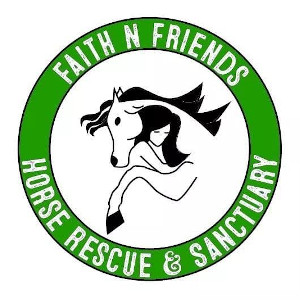
Faith N Friends
8505 Corryton-Luttrell Road
LUTTRELL, TN 37779
Mailing Address:
PO Box 1526
POWELL, TN 37849
Phone: 865-236-0607
MAKE AN INQUIRY
View our WEBSITE
EIN: 81-3676400Founded: 2016
Profile Last Updated January 9, 2026
Public Charity
NEXT CHAPTERS! Click here to view listings of our adoptable equines: Chile - Dominic - Leo - Strider

2025
The Guardian Seal of Transparency is awarded annually to recognize an organization's commitment to transparency and accountability by their willingness to make comprehensive data about their programs, horse care practices, and governance available for public scrutiny. The Guardian Seal of Transparency is NOT an endorsement.
Awarded Annually
Last Updated: November 30, 2025
Last Updated: November 30, 2025
Faith N Friends has not attained the Guardian designation for 2026.
MISSION & PROGRAMS
Mission:Faith N Friends works to address both the equine and human needs by providing care, treatment, rescue, and training, as well as matching loving owners to the right horse while helping and educating horse owners and the community.
Our organization provides programs involved with equine rescue, adoption & retirement
Our organization provides outreach and/or public education programs involving horses.
100% of our total programs and services are equine-related.
Our organization is directly responsible for the care and shelter of equines involved in our programs.
Our organization does not CURRENTLY use satellite, overflow, foster, and/or outreach facilities.
Please describe what steps your organization takes to ensure that:
1) all interactions between your equines and people are mutually beneficial and conducted in accordance with the Guidelines for Human-Equine Interactions stated below;
2) all equines in the care of our organization and/or equines that participate in the organization's program have access to clean drinking water at all times; nutritious food in sufficient quantity, including natural forage such as pasture grass and/or hay; appropriate veterinary, farrier, and dental care; shelter and protection from the weather; sufficient safe space to move around comfortably on a daily basis; and daily opportunity to freely interact and have contact with other equines:
Faith N Friends’ Humane Education Program is designed to foster empathy, respect, and responsible stewardship toward equines and all living beings.
Promotes a humane ethic in human-animal interactions
Respects and protects each animal's individual welfare
Ensures public safety
Provides animals with the choice to participate or “opt out”
Avoids objectification or exploitation of equines
Equines in FaithNFriends
-Equines are evaluated for temperament, willingness, and comfort in various settings before being included in any public-facing or interactive activities.
-Only horses who show consistent signs of enjoying human contact and who have been desensitized to relevant stimuli are selected.
-Equines are given the freedom to “opt out” of interactions at any time by walking away or expressing disinterest through body language.
-All interactive activities (e.g., grooming, groundwork, educational demonstrations) are conducted with haltered but untied horses, allowing autonomy and movement.
-Staff and volunteers are trained to recognize signs of stress, fatigue, or overstimulation and to respond by removing the horse from the activity as needed.
-Staff continuously observe equine behavior during sessions to assess comfort and engagement.
-Sessions are adjusted in real time to match the equine’s energy level and interest.
-Any signs of discomfort, including pinned ears, tail swishing, avoidance, or tension, are immediately addressed by pausing or ending the interaction
-After each session, equines are monitored for physical or emotional signs of stress.
-Staff and volunteers debrief and record observations to track patterns over time.
-Adjustments to equine schedules, environments, or participant pairings are made based on this feedback.
-Participants are taught respectful, consent-based grooming techniques.
-Equines are haltered but not tied, free to walk away or show disinterest.
-Only horses who enjoy touch and have previously shown comfort with this interaction are used.
-Animals can move freely or “opt out” by walking away.
-Equines who are calm, social, and have been desensitized to public settings may be taken to community events.
-Each event includes a quiet zone, limited duration (under 2 hours), and early return if animal shows signs of stress.
Equine Selection Criteria
Each equine is evaluated using the following steps:
Behavioral Assessment
Conducted by our equine manager and trainer.
Looks at tolerance to new people, noise, physical contact, and environment.
Health & Physical Capability Review
Cleared by our veterinarian or equine health specialist.
No participation for horses with chronic pain, illness, or discomfort.
Preference and Consent
Horses are observed for willingness and comfort during trial sessions.
Equines who walk away, pin ears, swish tail, or show reluctance are immediately removed from the activity.
Ongoing Monitoring
Animals are continually assessed during and after participation for stress signs or behavior changes.
Program Structure and Implementation
1. Preparation
Staff and volunteers are trained in:
Equine behavior and stress signals
Low-stress handling
Emergency procedures
Educator-to-animal ratio (no more than 4 participants per equine)
2. Participant Orientation
All guests receive a safety briefing:
No running or shouting
Ask permission before approaching any animal
Respect animal’s choice to walk away
3. Activity Execution
Animals remain unrestrained (loose lead or stall door open) when appropriate
Sessions are limited to 30-45 minutes with breaks
Shade, water, and rest provided at all times
4. Animal “Opt-Out” Procedures
Equines may:
Move away from the group
Refuse haltering
Show disinterest or mild resistance
In these cases, the animal is immediately removed or left alone
No animal is forced or coaxed to participate
Safety and Welfare Considerations
Veterinary Oversight: All participating animals are regularly evaluated by a vet.
Staffing: One handler per equine minimum; educators are CPR and first-aid trained.
Environment: Calm, enclosed areas with no hazards.
Weather Limitations: No outdoor events over 85°F or under 40°F without proper shelter/clothing.
Incident Response: All accidents or stress-related behaviors are documented and reviewed.
Program Review and Improvement
Biannual reviews conducted to:
Assess animal participation satisfaction
Update safety protocols
Integrate feedback from staff, volunteers, and the public
Faith N Friends commits to the ethical treatment and respect of every equine in our care. Our Humane Education Program embodies these values by offering engaging, educational experiences that center the well-being and autonomy of our equine partners while promoting lifelong compassion in humans.
2. Equine Welfare Protocol at Faith N Friends
1. Clean Drinking Water Access
Monitored trough systems are checked twice daily for cleanliness and functionality.
Buckets and troughs are scrubbed weekly and immediately cleaned if contamination (algae, feed, manure) is noticed.
Portable clean water is provided during transport or off-site events.
2. Nutritious and Sufficient Feed
All equines receive:
Free-choice hay
Pasture grazing when seasonally appropriate
Individual grain or supplemental feedings for horses with higher caloric or medical needs
A nutrition plan is developed by the barn manager in consultation with a veterinarian.
Weight and body condition are monitored monthly; and weekly for equine that are hard keepers, diet is adjusted accordingly.
3. Veterinary, Farrier, and Dental Care
Routine veterinary care includes:
Annual wellness exams and vaccinations
Dental exams and floating at least once per year
Deworming protocols based on fecal egg counts
Prompt response to injury, illness, or behavioral changes
Farrier care is provided every 4–8 weeks for all equines, barefoot or shod.
Medical records are digitally maintained and reviewed monthly by the Equine Care Team.
4. Shelter and Weather Protection
Each pasture includes run-in sheds that provide shelter from sun, wind, rain, and snow.
In severe weather:
Blankets or fly sheets are used according to seasonal needs and individual tolerance.
Shelter spaces are cleaned daily and bedded appropriately with straw or shavings.
5. Freedom to Move and Exercise
All equines have daily turnout (minimum of 8 hours) in secure, clean, and spacious paddocks or fields.
No horse is confined long-term to a stall unless medically required and under vet supervision.
Pastures are rotated and maintained to prevent overgrazing and injury.
For equines unable to be turned out due to medical need, hand-walking or outdoor arena turnout is provided.
6. Social Interaction with Other Equines
Herd groups are carefully managed to allow:
Natural bonding and social interaction
Minimized stress or bullying
Introduction of new horses through safe, gradual processes (paddock adjacent before full turnout)
Horses are never kept in isolation unless prescribed for medical reasons, and even then, they are housed near other equines for visual and auditory contact.
7. Daily Welfare Checks
Staff and volunteers perform:
Twice-daily visual checks of each equine’s condition, behavior, water, and feed
Document findings in a shared log and alert management to any concerns
Daily grooming and handling to monitor for swelling, cuts, hoof issues, or behavioral shifts
8. Off-Site or Program Participation Monitoring
Only horses who are:
Fully healthy
Up-to-date on care
Behaving normally and free of stress signals
Cleared by staff and veterinarian (if necessary)
Are approved for participation in off-site or public education programs.
Equines are monitored closely during and after each activity for signs of fatigue, stress, or health changes.
9. Oversight and Documentation
Monthly care audits.
All care is logged in individual horse records accessible by staff.
Board members and the Executive Director conduct quarterly welfare reviews.
Faith N Friends is committed to creating a living environment where every horse thrives physically, mentally, and emotionally. These daily practices reflect our core mission: Helping Horses Help People—starting by helping horses live in peace, safety, and dignity.
Equine Transition Services:
Overview of our programs involved with rescue, rehabilitation, retraining, re-homing and/or retirement:
Faith N Friends accepts owner surrenders and donations of equines for rehoming and sanctuary (retirement) opportunities. Owner Surrender information and forms are provided under direct links on our website. We promote rehoming through adoption with individual pages on our website for each adoptable equine. We provide clear and transparent information on each equine, including any vices, disabilities, or special needs. We provide pictures and video where available for each horse with clear contact and adoption information.
Outreach and/or Public Education:
On-site school programs and summer camps for elementary-aged students, providing handling and riding opportunities as well as education.
Volunteer opportunities for school-aged children through high school, all age groups of adults, providing handling and riding opportunities as well as education.
Partnering with local agencies to provide handling and education opportunities for special needs and other groups. (Knox County CAC - Community Action Committee, knoxcac.org, Sunrise Group - a community-based residential and day service organization for those with minimal and advanced intellectual and developmental disabilities, Girl Scouts Southern Appalachians)
Research/Medical Use of Equines:
Our organization has never made, and would not ever consider making, equines available for research studies or medical training that involves invasive procedures and/or that which may cause pain or suffering to the equine.
Religious Affiliation:
Our organization does not promote religious education, religious purposes, or a specific religious faith or use donations for religious education or religious purposes; require participants to be of a certain faith; require participation in religious, instruction, activities or services; or require participation in prayer, worship, religious instruction or other religious activities as a condition of receiving social or secular services offered.
Auction Donation:
Our organization has never allowed, or would not consider allowing, an equine to be sold, transferred, released, or otherwise placed into possession of any person or organization that would cause or allow the equine to be sold at auction for slaughter.
POLICIES: INTAKE, ASSESSMENT & TRAINING
Prior to a horse being accepted and/or arriving at the facility, the organization has the following policies in place:The owner of a potential equine is interviewed over the phone or in person prior to seeing the equine
The owner completes an application/contract which constitutes the agreement between the owner and our organization when the equine is acquired from the equine's owner other than by seizure or by abandonment
The owner is financially responsible for the shipping of the equine to and from the organization
If health records are not available or are out-of-date, our veterinarian will administer appropriate vaccinations
Not Checked:
The equine is evaluated at its place of residence
A health certificate signed by a veterinarian and dated no more than seven days prior to arrival is provided to our organization either prior to or upon arrival of the equine attesting to the health status of the equine
The equine is evaluated at its place of residence
A health certificate signed by a veterinarian and dated no more than seven days prior to arrival is provided to our organization either prior to or upon arrival of the equine attesting to the health status of the equine
Trial Period: Check all that apply:
Equines are not taken on trial
Upon intake, the organization has the following quarantine policy in place:
The equine is confined to a designated and separate area for isolation and quarantine at the facility for a prescribed period of time
Not Checked:
The equine is confined to a designated and separate area for isolation and quarantine off-site for a prescribed period of time
The equine is not quarantined
The equine is confined to a designated and separate area for isolation and quarantine off-site for a prescribed period of time
The equine is not quarantined
The typical length of quarantine is: 20 to 30 days
Following arrival of the equine at the facility, the following is performed:
Physical examination to include temperature, pulse and respiration by a veterinarian upon arrival
Physical examination to include temperature, pulse and respiration by a trained staff member upon arrival
A Henneke Body Conditioning Score or other body conditioning score is assigned by a trained staff member upon arrival
Photographs are taken of each equine upon arrival at the facility and kept with the equine's health records
Physical examination by a farrier
The equine is microchipped if the equine has not been microchipped
Not Checked:
A Henneke Body Conditioning Score or other body conditioning score is assigned by a veterinarian upon arrival
Physical examination by a dentist
A Henneke Body Conditioning Score or other body conditioning score is assigned by a veterinarian upon arrival
Physical examination by a dentist
Horses are assessed for following skills and behaviors:
Retrieval from a pasture/paddock
Leading with a halter and lead rope
Temperament, disposition and attitude, such as rated from very calm to very high spirited
Saddling
Bridling
Lunging
Loading onto and unloading off a trailer
Mounting and dismounting
Riding at the walk
Riding at the trot
Riding at the canter
Riding by a beginner and/or unbalanced rider
Tolerance to unusual objects and loud noises
Known vices, i.e., cribbing, biting, kicking, weaving, stall walking, etc
Grooming
Tolerance to multiple handlers at the same time
Not Checked:
Jumping
Driving (Pulling a carriage)
Bathing
Clipping
Jumping
Driving (Pulling a carriage)
Bathing
Clipping
Our organization has the following policies and procedures in place pertaining to the ongoing assessment of horses in its care:
Physical examination by a veterinarian at least annually
The Henneke Body Condition score or other body conditioning score is updated at least annually by a trained staff member
Vaccinations are administered at least annually
Equines at our facility may be treated by an equine chiropractor
Equines at our facility may be treated by an equine acupuncturist
Equines at our facility may be treated by an equine massage therapist
Equines at our facility may be treated by an equine nutritionist
Not Checked:
The Henneke Body Condition score or other body conditioning score is updated at least annually by the veterinarian
Photographs are taken of each equine monthly and kept with the equine's health records
Photographs are taken of each equine annually and kept with the equine's health records
The Henneke Body Condition score or other body conditioning score is updated at least annually by the veterinarian
Photographs are taken of each equine monthly and kept with the equine's health records
Photographs are taken of each equine annually and kept with the equine's health records
Our organization has the following policies and procedures in place pertaining to the weight-carrying or workload capabilities of horses/equines that are ridden in our care:
Our organization evaluates the weight-carrying and workload limitations for each equine that is ridden at least annually
Our organization maintains a written record of the weight-carrying and workload limitations for each equine that is ridden
Not Checked:
Our organization does not evaluate the weight-carrying and workload limitations for each equine that is ridden
No equines are ridden; not applicable
Our organization does not evaluate the weight-carrying and workload limitations for each equine that is ridden
No equines are ridden; not applicable
The following variables are considered in determining the weight-carrying and workload limitations for each equine that is ridden:
Equine age, weight, breed, body condition, fitness, balance, health and soundness
Equine conformation to include the top line, length of back, strength and width of loin, bone density (measured by the circumference of the cannon bone just below the knee)
Size, shape, condition and angle of the hooves
Participant weight, height, body proportions, balance, fitness and riding skills as well as behavioral issues and safety concerns
Weight and proper fit of the saddle and other equipment
Terrain and footing in the working environment
Duration and frequency of working sessions, as the frequency with which an equine is subjected to maximum weight carrying and/or workload
Nature and pace of work, repetitive or varied, radius of turns, degree of incline and regularity of footing when equine is subject to maximum weight-carrying capacity
Temperature and/or weather conditions
Seasonal impact on the equines' workload and weight-carrying capabilities and limitations
Not Checked:
Our organization does not evaluate the weight-carrying and workload limitations for each equine that is ridden
No equines are ridden; not applicable
Our organization does not evaluate the weight-carrying and workload limitations for each equine that is ridden
No equines are ridden; not applicable
Horses provided formal training (groundwork or riding): 2-3 times per week
Additional information about our intake, assessment & training policies and practices:
Following arrival at the facility, the following is performed:
Depending on the condition of the horse at arrival, a veterinary visit will be scheduled asap if we determine it's needed. So many times owners who surrender do not always reveal the complete history or condition of the horse, but every horse is assessed on arrival to determine condition & if a vet visit is req'd.
We require all surrenders to be up to date on all vaccines/dental/deworming/coggins/farrier. There are times when an owner cannot afford the cost or because of their situation, whatever it may be, we will accept the horse and take care of it by a vet at our cost.
We sometimes evaluate a horse at its current place of residence prior to intake. If we cannot evaluate at the place of residence, we ask for videos and pictures to be sent for review.
We use an intake form for assessment at the time of arrival. We often find inconsistencies with the information the owner has provided on their owner surrender form. The owner surrender form is rec'd by email with pictures and is presented to the board for acceptance or denial.
Where is a horse/equine quarantined on intake? We only quarantine if we are not provided current health records by the owner until we can have the horse brought up to date by our vet, and then kept in quarantine for up to 30 days.
We have maintained all records digitally with Stable Secretary software and hard copy binders for all horses. In our October board meeting, it was we would go paperless for the horse records except for original Registration papers. All other documents and records will be maintained in an electronic file on our computer and uploaded to Stable Secretary.
POLICIES: BREEDING
The organization has the following policies related to breeding and stallions:Our organization does not conduct breeding of equines owned or under the care of our organization.
The main facility where our organization conducts its programs does NOT breed equines.
Not Checked:
One or more of the facilities where our organization conducts its programs, including foster/temporary care facilities, breeds equines
One or more of the facilities where our organization conducts its programs, including foster/temporary care facilities, are permitted to house stallions
One or more of the facilities where our organization conducts its programs, including foster/temporary care facilities, breeds equines
One or more of the facilities where our organization conducts its programs, including foster/temporary care facilities, are permitted to house stallions
POLICIES: EUTHANASIA
The organization has the following policies related to euthanasia:Our organization will never have an equine euthanized for space
Our organization will have an equine euthanized upon the recommendation of the veterinarian if the equine is a threat to itself, other equines, or people
Our organization will have an equine euthanized upon the recommendation of the veterinarian after all reasonable treatment options have been explored
Euthanasia is done on site when possible to decrease trauma from transport
Euthanasia is done at the veterinarian's facility
Disposal of the carcass is handled within 24 hours
Not Checked:
Our organization will never have an equine euthanized under any circumstances
Our organization will never have an equine euthanized under any circumstances
The following are authorized to administer the procedure for your organization in accordance with state laws:
Veterinarian
A certified euthanasia technician
Veterinary student under the supervision of a licensed veterinarian
Not Checked:
Senior staff with appropriate training
Employee of animal control shelter or humane society with appropriate training
Not applicable. Our organization prohibits euthanasia under any circumstances
Senior staff with appropriate training
Employee of animal control shelter or humane society with appropriate training
Not applicable. Our organization prohibits euthanasia under any circumstances
Additional information about our euthanasia policies and practices:
POLICIES: EUTHANASIA: "Our organization may have a healthy equine euthanized if it is a threat to itself, other equines, or people."
We have never encountered such a situation where we thought a horse needed to be euthanized due to its' behavior. If a horse has behavioral issues, it is sent to a professional trainer. Only as a last resort and if recommended by a veterinarian will it be considered.
POLICIES: RE-HOMING
View Re-homing AgreementOur organization has the following re-homing (adoption/purchase) policies and procedures in place:
All potential adopters/purchasers complete a written contract which constitutes the agreement between our organization and the new owner
Our organization will only re-home an equine to a location where another equine resides
Potential adopters/purchasers must visit our organization and be observed with the equine on site
The distance of a potential adopter/purchaser's home from our facility is a consideration for when re-homing an equine
Our organization conducts a site visit of the adopter/purchaser's facility before the transfer of the equine to the adopter/purchaser's facility
Not Checked:
Our organization does NOT re-home an equine to first time equine owners
Potential adopters/purchasers are encouraged to do a short-term, on-site foster with the equine
Adopters/purchasers are NOT required to provide updates
Our organization does NOT re-home an equine to first time equine owners
Potential adopters/purchasers are encouraged to do a short-term, on-site foster with the equine
Adopters/purchasers are NOT required to provide updates
Our organization has the following policies and procedures related to horses that need to be retired, are no longer able to contribute to the mission of the organization, and/or are no longer manageable:
Equines may remain at our organization for their lifetimes
Equines may be found suitable homes by our organization
In the case an equine is unmanageable and demonstrates repeated dangerous behaviors, the equine may be euthanized upon the recommendation of the veterinarian
In the case an equine is unsound and/or unhealthy and cannot be treated to relieve suffering, the equine may be euthanized upon the recommendation of the veterinarian
The organization will accept financial responsibility for equines in the current care of the organization that need to be retired or are no longer able to contribute to the mission of the organization if all alternatives have been explored to find the equine an appropriate placement and space is not available for the equine to remain at the organization.
Not Checked:
Equines may be returned to their owners
Equines may be sent to auction
If a suitable home cannot be located within 12 months, the equine may be euthanized
Equines may be returned to their owners
Equines may be sent to auction
If a suitable home cannot be located within 12 months, the equine may be euthanized
The uploaded Re-homing agreement includes the following re-homing (adoption/purchase) statements:
The agreement reflects that any individual or organization in possession of the equine as of the date of the agreement and any time thereafter is bound to not sell the equine at auction for slaughter or allow the equine to be sold, transferred, released, or otherwise placed into possession of any person or organization that will cause or allow the equine to be sold at auction for slaughter.
The agreement states that should the adopter decide to re-home the equine, our organization must grant approval of any individual or organization intending to take possession of the equine for any reason prior to the equine being placed into the possession of such individual or organization, including being provided written notification of the name, address, and telephone number of any individual or organization intending to take possession of the equine for any reason.
The agreement states that the terms of our organization's agreement will be binding on any future individual or organization taking and/or in possession of the equine for any reason.
The agreement states that re-homed equines cannot be bred
The agreement states that if there is any breach of contract the equine must be returned to our organization
The agreement states that our organization reserves the right to make unannounced visits
The agreement states that our organization reserves the right to make scheduled visits
The agreement states that adopters/purchasers can return an equine to our organization free of charge
Our organization microchips all equines that are not already microchipped before the adoption and/or transfer of the equine if the organization has the authority to microchip the equine.
The agreement states that adopters/purchasers are required to provide updates (photos, vet records) for as long as the adopter/purchaser is responsible for the care of the equine
Not Checked:
The agreement states that the re-homed equine CANNOT be sold, adopted, transferred, auctioned, released, given away, or otherwise placed into the possession of another individual or organization under any circumstances and must be returned to our organization should the adopter decide that he/she is no longer able, or no longer wishes, to care for the equine.
The agreement states that should the adopter decide to re-home the equine, the adopter must grant the organization first right of refusal prior to the equine being placed into the possession of any individual or organization intending to take possession of the equine for any reason.
The agreement states that should the adopter decide to re-home the equine, our organization must be notified of the name, address, and telephone number of any individual or organization intending to take possession of the equine for any reason prior to the equine being placed into the possession of such individual or organization.
The agreement states that adopters/purchasers can return an equine to our organization for a fee
The agreement states that adopters/purchasers are required to provide updates (photos, vet records) for one year
The agreement states that adopters/purchasers are required to provide updates (photos, vet records) for two years
The agreement includes the microchip number of the equine.
None of the statements are included.
The organization does not re-home equines under any circumstances; our organization retains custody of our equines and ensures care of the equines for their lifetimes.
Our organization does not have the authority to transfer ownership and/or does not own any of the equines involved with our programs.
The agreement states that the re-homed equine CANNOT be sold, adopted, transferred, auctioned, released, given away, or otherwise placed into the possession of another individual or organization under any circumstances and must be returned to our organization should the adopter decide that he/she is no longer able, or no longer wishes, to care for the equine.
The agreement states that should the adopter decide to re-home the equine, the adopter must grant the organization first right of refusal prior to the equine being placed into the possession of any individual or organization intending to take possession of the equine for any reason.
The agreement states that should the adopter decide to re-home the equine, our organization must be notified of the name, address, and telephone number of any individual or organization intending to take possession of the equine for any reason prior to the equine being placed into the possession of such individual or organization.
The agreement states that adopters/purchasers can return an equine to our organization for a fee
The agreement states that adopters/purchasers are required to provide updates (photos, vet records) for one year
The agreement states that adopters/purchasers are required to provide updates (photos, vet records) for two years
The agreement includes the microchip number of the equine.
None of the statements are included.
The organization does not re-home equines under any circumstances; our organization retains custody of our equines and ensures care of the equines for their lifetimes.
Our organization does not have the authority to transfer ownership and/or does not own any of the equines involved with our programs.
Our organization requires references from the following:
Veterinarian
Farrier
Personal/Other
Not Checked:
Not applicable or no references required.
Not applicable or no references required.
Transfer of ownership occurs: Immediately (at the time of adoption/purchase) or less than one year
The average equine re-homing (adoption/purchase) fee received by your organization:
$501 to $750
Additional information about our rehoming policies and practices:
The Adopter must return the equine to Faith N Friends if the adopter can no longer care for the equine. If the adopter has a suggestion for a future adopter, the future adopter must go thru the application process and sign the Faith N Friends adoption contract. These provisions protect the equine for the equine's lifetime.
We may allow a surrendered horse to be returned to its owner under special circumstances only; we personally know the owner, and there were extenuating circumstances that caused the surrender. We have done this only one time in our history. It is normally not even considered.
EQUINE CARE & SHELTER/FACILITY INFORMATION
Our organization does not CURRENTLY use satellite, overflow, foster, and/or outreach facilities.Total facilities at which our organization cares for and shelters horses used in our programs: 1
Faith N Friends
Corryton Luttrell Road Corryton TN 37721
Currently operational
Total number of horses/equines currently involved with your programs, under your care, and/or owned by your organization at this facility: 20
Total number of horses at this facility NOT INCLUDING those counted above: 0
Maximum capacity of horses at this facility: 30
Does your organization own, lease or use a part of this facility? Lease
Provide the contact information for the individual or organization responsible for investigating abuse in the county where the facility is located, including mailing address, email address, and phone information.
Union County Humane Society P.O. Box 625 719 Hickory Star Road Maynardville, Tennessee 37807-0625 Phone: 865-992-7969 Fax: 865-745-1648 info@unioncountyhumanesociety.org
Does your organization conduct Equine Assisted Services (EAS) at this facility in accordance with the EQUUS Foundation Guidelines on Qualifications of Organizations Conducting Equine Assisted Services (EAS)? No
ADDITIONAL INFORMATION ABOUT THIS FACILITY:
It is in our immediate future to install motion lights for the exterior of the barn & other buildings.
Along with electric fencing we also have KY four board fencing, to be expanded in the near future.
Regarding the total number of facilities/locations where horses are cared for and housed, this is a constantly changing number. We currently are only sheltering horses at our main facility.
We do have the ability to oversee equine at night. We have 24/7 camera surveillance. In addition, if we have emergencies that need attention overnight our trained volunteers sign up for overnight shifts in case of an equine emergency.
Veterinarian Information: Faith N Friends (*Main) Currently operational
Veterinarian: Hilary Hancock
Clinic Name: Rocky Valley Veterinary Services
185 COWBOY WAY
Strawberry Plains TN 37871
Phone: 865-566-8359
Grounds: Faith N Friends (*Main) Currently operational
Total acreage dedicated specifically to the horses: 60
Our organization has use of the following at this facility:
Structures/Barns: 1 Run-in sheds: 10
Pastures: 10 Paddocks/Pens/Turnout Areas: 0
Uncovered Outdoor Rings: 2 Covered Outdoor Rings: 0 Indoor Rings: 0
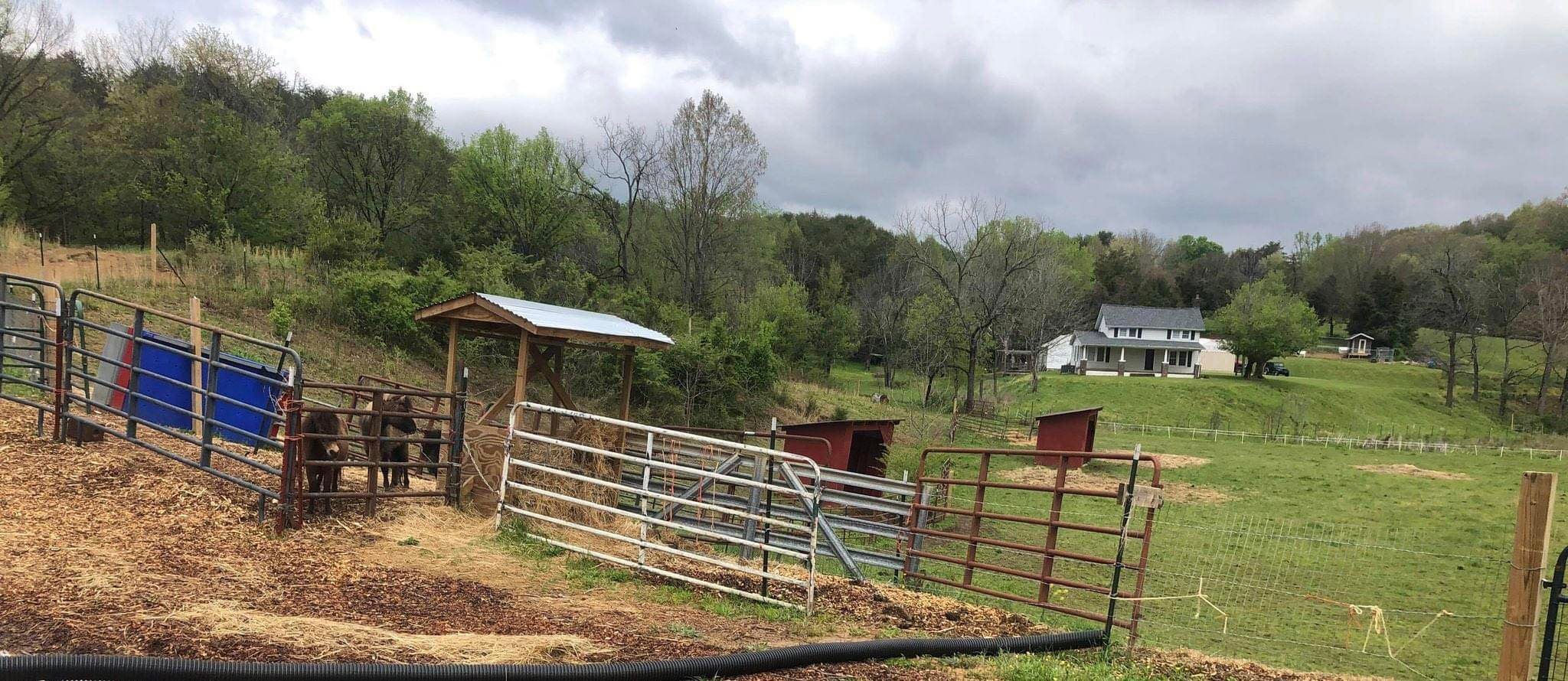
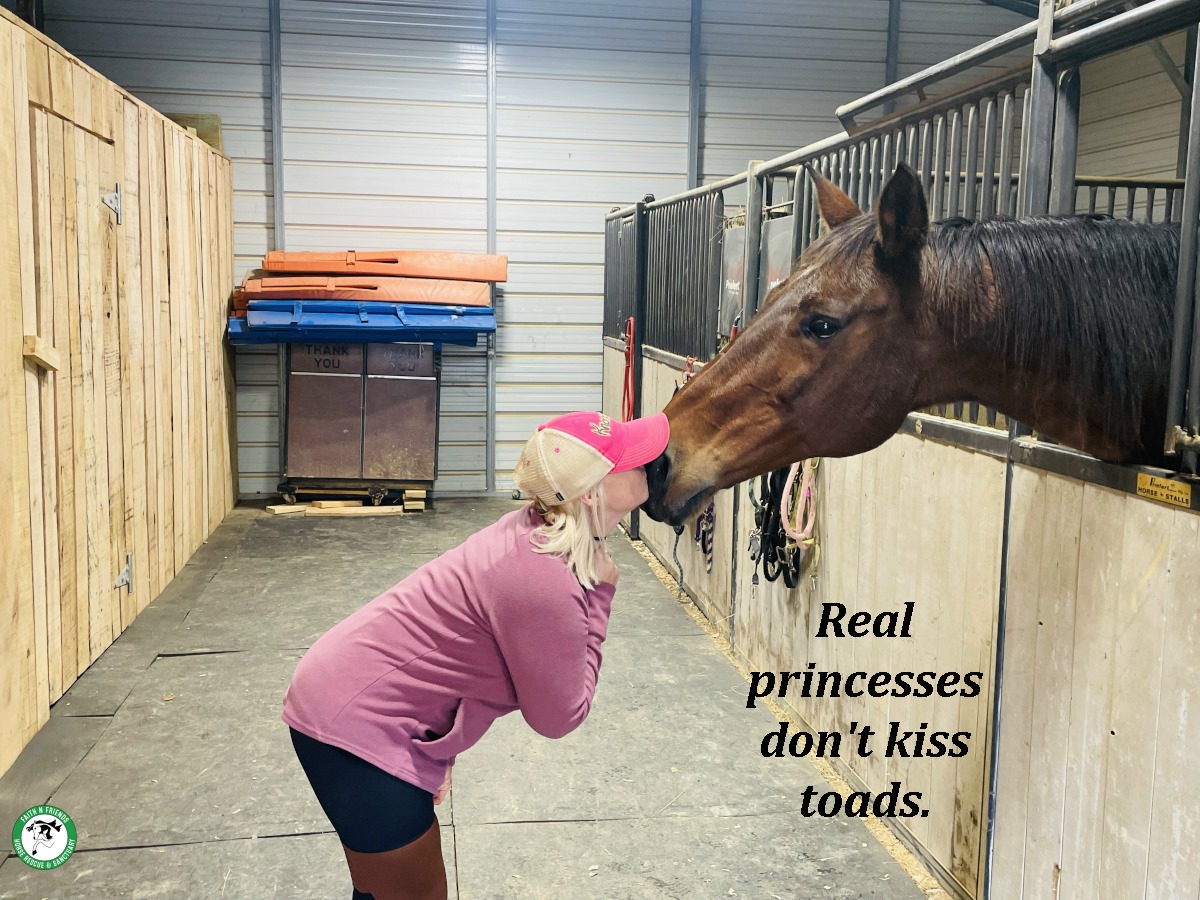
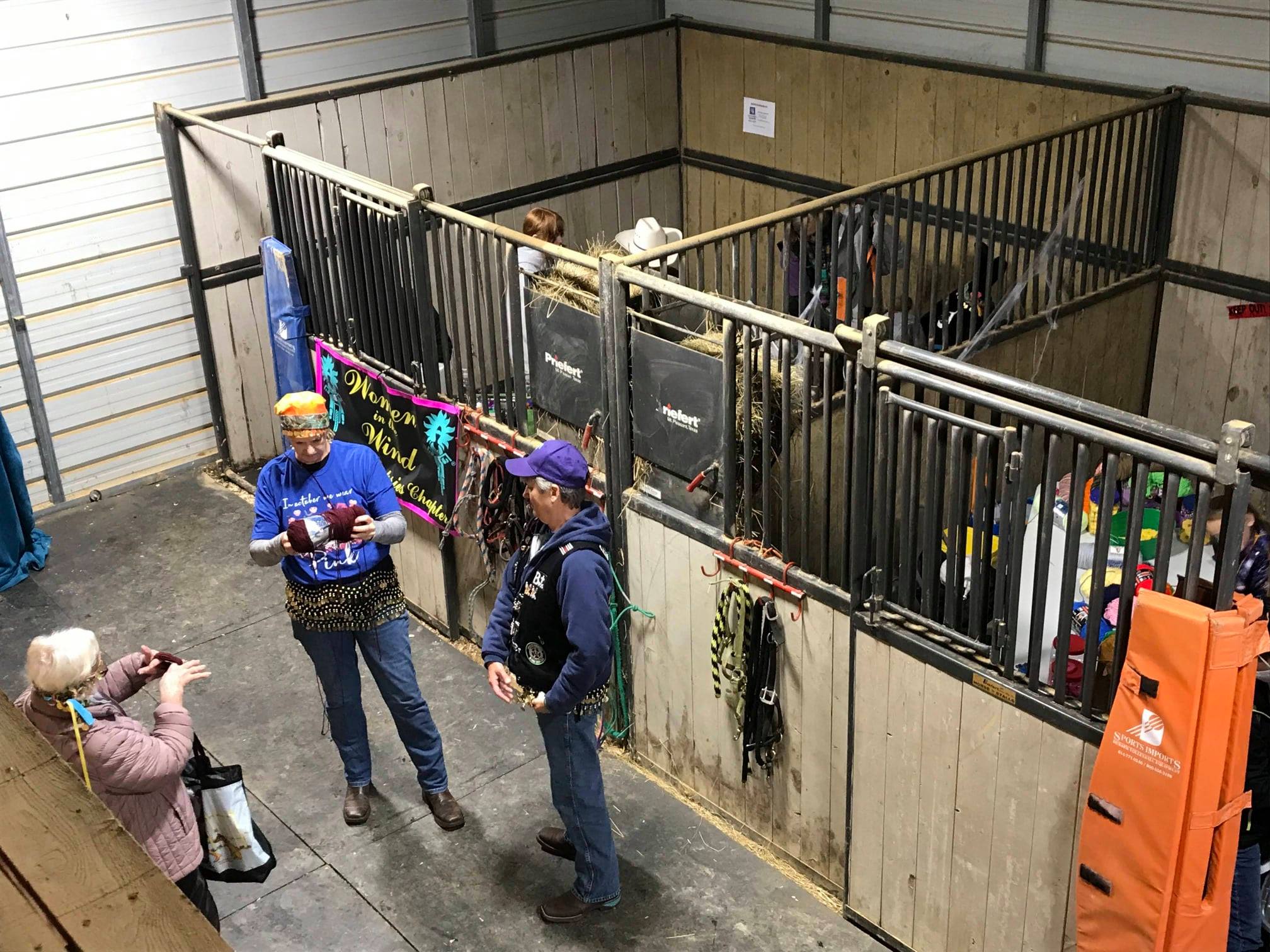

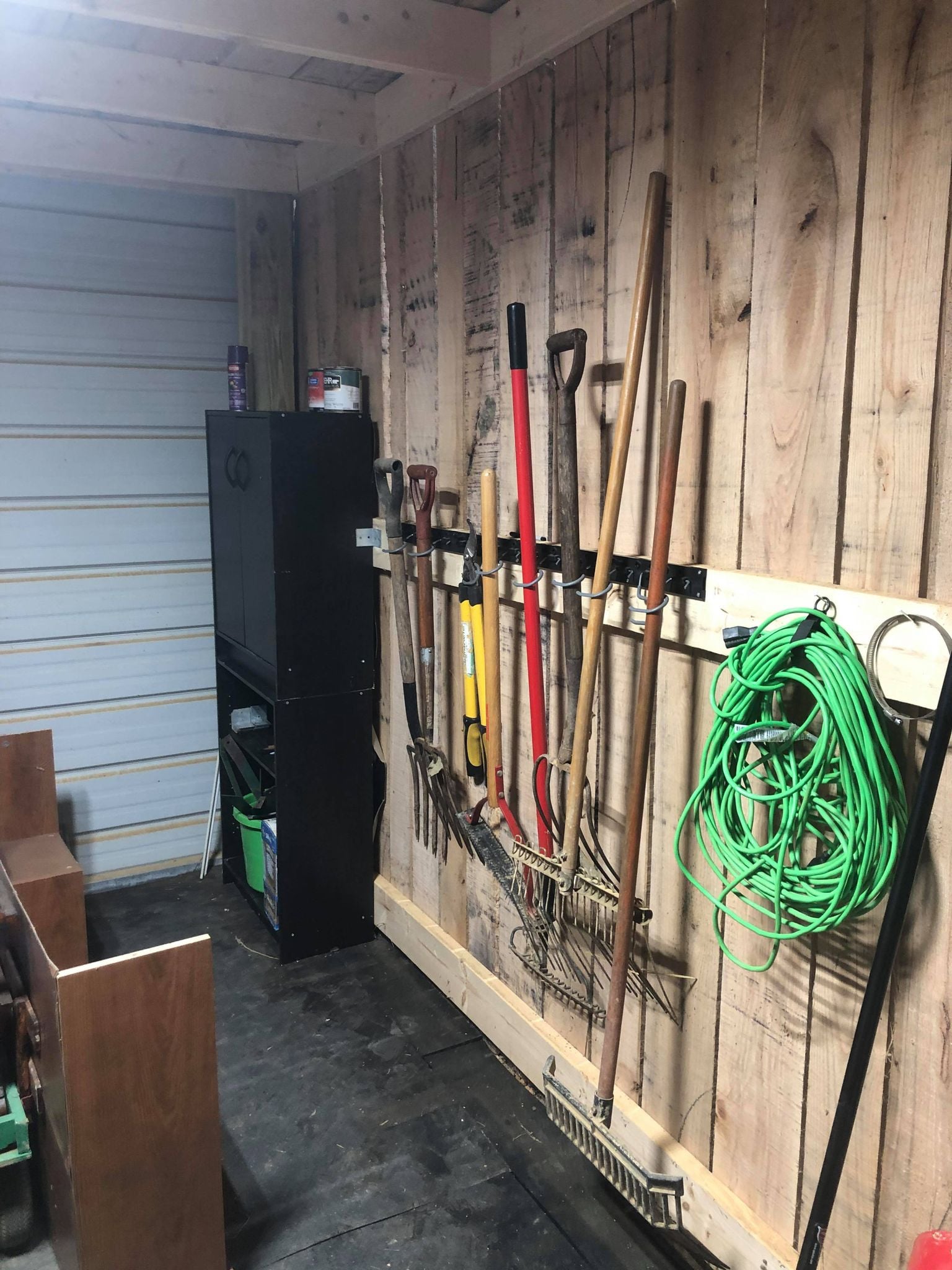
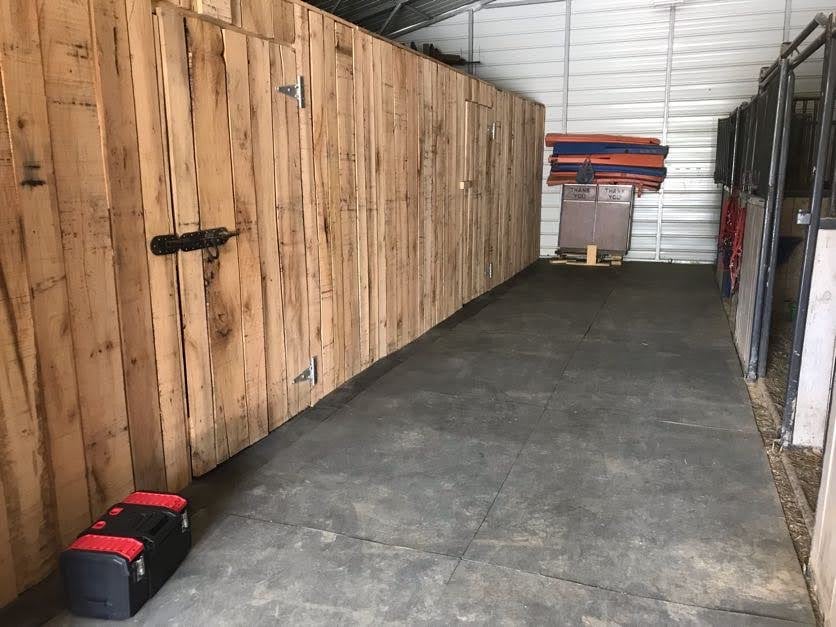
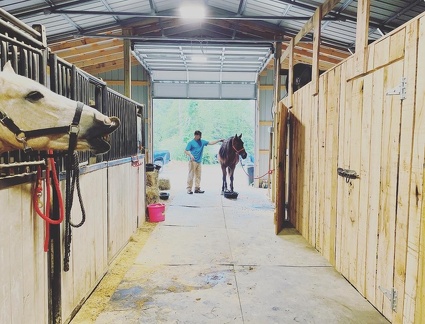
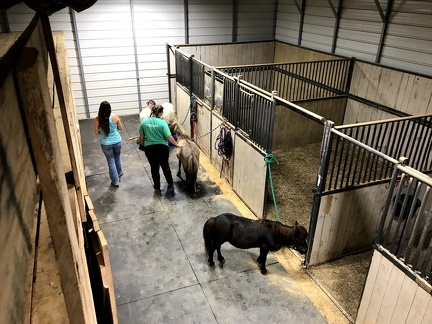
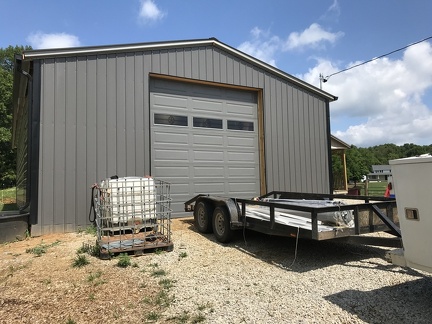
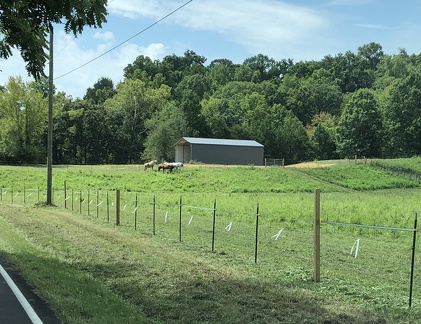
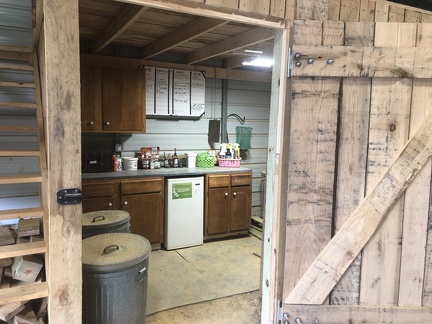
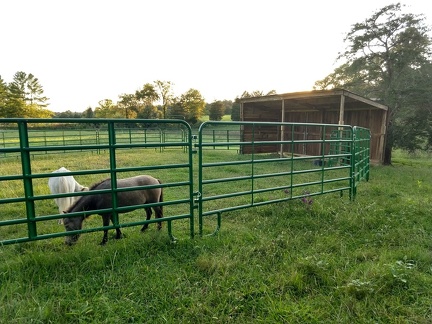
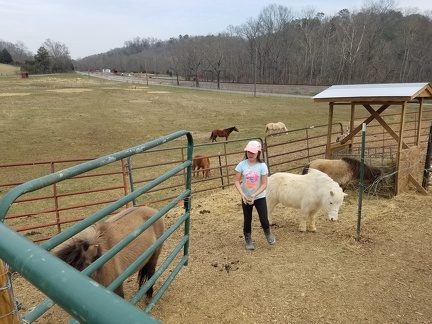
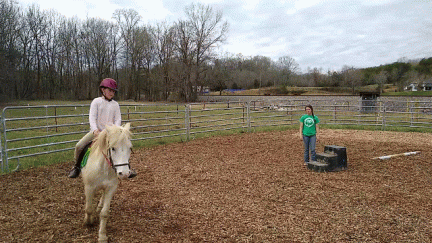
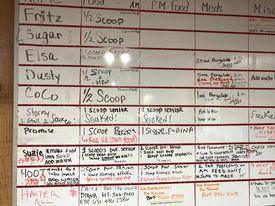
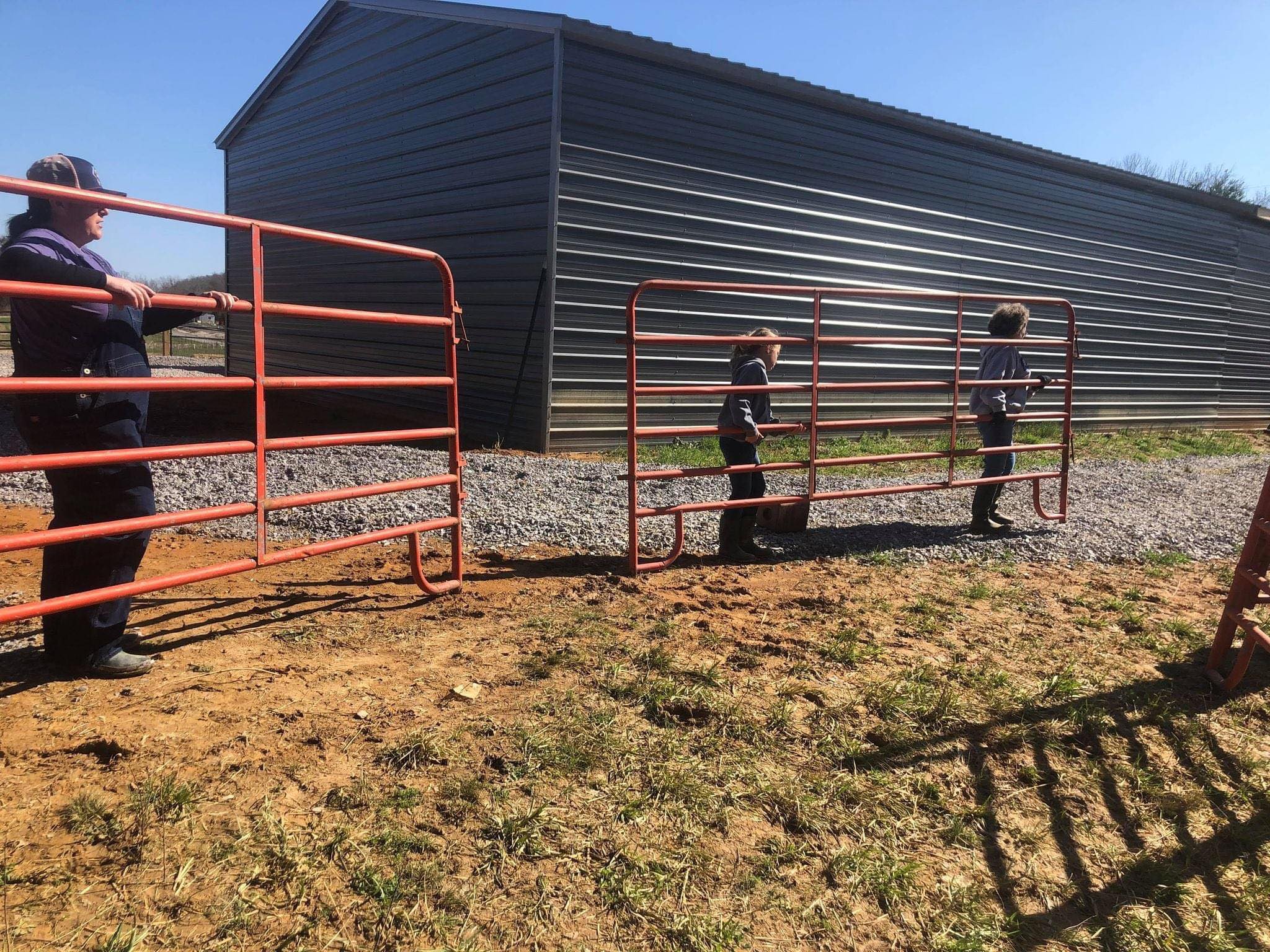
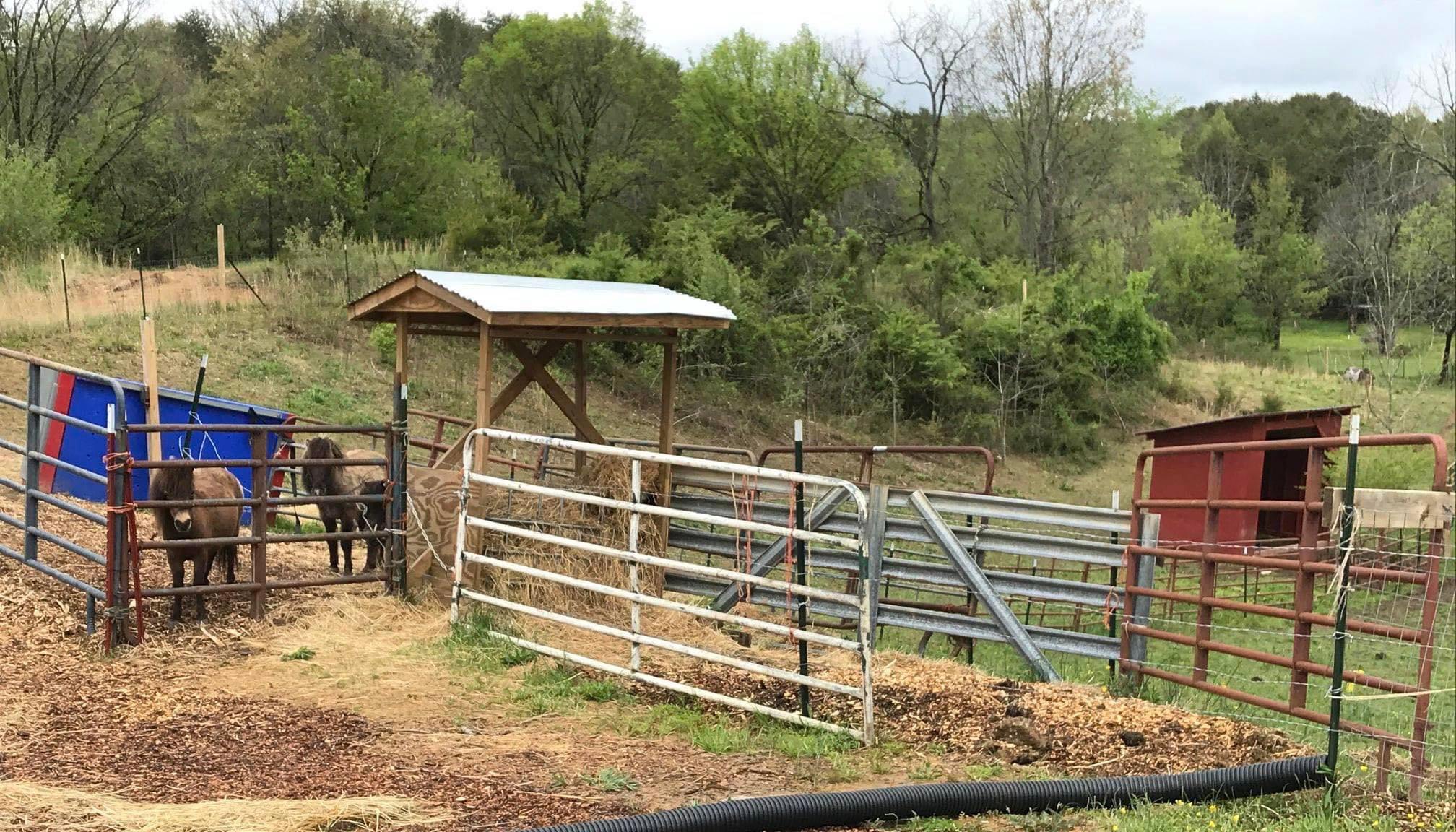
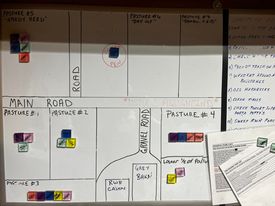
Are the organization's rules, restrictions and warnings (signage) conspicuously posted in easily accessible locations? Yes
Are the organization's emergency contacts, including veterinarian contact information, conspicuously posted in easily accessible locations? Yes
Are human and equine first aid kits easily accessible? Yes
Regarding all shelters where horses are housed including run-in sheds:
Do horses have assigned stalls in the barn/structure(s) or exclusively assigned shelter locations where they are separated from other horses with a barrier? Yes
How many hours per day, on average, are horses stalled or restricted to these sheltered exclusive shelter locations? 0-3;
How often are the stalls/shelters cleaned, i.e., kept in good repair and free of standing water, accumulated waste, sharp objects and debris? 6-7 Days a Week
Do all stalls/shelters allow horses to lie down, stand up and turn around and provide protection from inclement weather (wind, sleet, rain, snow and extreme temperatures)? Yes
Are stalls/shelters kept in good repair, with adequate ceiling height, and free of standing water, accumulated waste, sharp objects and debris? Yes
Are floors constructed and maintained for both good drainage and traction? Yes
Is there a ventilation and circulation system in place to allow free flow of air to control temperature, and humidity, and to prevent air stagnation? Yes
Is wiring inaccessible to horses and maintained for safety in all areas of facility? Yes
Are fire prevention/protection measures (fire alarms, extinguishers and sprinkler systems) maintained and in good working order? Yes
Is there adequate lighting to ensure safety in all areas of facility? Yes
How many hours per day, on average, are horses turned out:
Equines are out 24/7 except they are brought in to feed
Equines are out 24/7 except when they are used for the conduct of the organization's programs
The following describes the pastures at this facility:
A dedicated staff person(s) is responsible for pasture management
All pastures are fenced to prevent escape or injury
Electric fencing is used; electric wires or tape fence are visibly marked
Fencing checks, such as broken or missing planks, loose fence posts, exposed or loose nails, detached wires, etc., are done regularly
Pastures are rotated
Pastures have natural protection for equines (i.e., trees)
Pastures have man-made protection for equines (i.e., shelters)
Not Checked:
This facility does not have pastures where equines can graze on pasture grass
This facility has a written plan in place for pasture management, which includes guidelines for seeding, fertilizing, irrigation, mowing, dragging, harrowing, manure removal, removal of debris, the control of poisonous plants, and a schedule for cleaning
Barbed wire is used for fencing
This facility does not have pastures where equines can graze on pasture grass
This facility has a written plan in place for pasture management, which includes guidelines for seeding, fertilizing, irrigation, mowing, dragging, harrowing, manure removal, removal of debris, the control of poisonous plants, and a schedule for cleaning
Barbed wire is used for fencing
The following describes the turnout areas other than pastures at this facility:
All turnout areas are fenced to prevent escape or injury
Electric fencing is used; electric wires or tape fence are visibly marked
Turnout areas have man-made protection for equines (i.e., shelters)
Fencing checks, such as broken or missing planks, loose fence posts, exposed or loose nails, detached wires, etc., are done regularly
Not Checked:
This facility does not have turnout areas
This facility has a written plan in place for the maintenance of turnout areas, which includes a schedule for cleaning, manure removal, and dragging
A dedicated staff person(s) is responsible for the maintenance of turnout areas
Barbed wire is used for fencing
This facility does not have turnout areas
This facility has a written plan in place for the maintenance of turnout areas, which includes a schedule for cleaning, manure removal, and dragging
A dedicated staff person(s) is responsible for the maintenance of turnout areas
Barbed wire is used for fencing
The following policies and procedures are in place at the facility to restrict public access and to keep horses safe:
There is a mechanism in place to monitor equines overnight
By Appointment Only signs are posted.
No Trespassing signs are posted
Hold Harmless signs are posted
Authorized Personnel Only signs are posted
Entrance gates are locked at night
Visitors are only permitted at specific times
Visitors are only permitted in specific areas
The property is fitted with a security system that is monitored internally by staff (or the property owner)
The perimeter of the property is fully fenced
Not Checked:
The property owner, staff member or caretaker lives on the premises and ensures that public access is restricted and is responsible for the security of the facility and equines
A security guard is present at night
The property is fitted with motion lights
The property is fitted with a security system monitored by police or a professional service
The property owner, staff member or caretaker lives on the premises and ensures that public access is restricted and is responsible for the security of the facility and equines
A security guard is present at night
The property is fitted with motion lights
The property is fitted with a security system monitored by police or a professional service
Equine Care/Emergency Preparedness: Faith N Friends (*Main) 2026 and 2025 This section is required.
Horse Health Care/Barn Management Records: What system is used to collect and store health/horse care records?
Notebook or equivalent (technology not utilized)
Our organization utilizes a software application to maintain records
The following items are consistent with our feed management plan and practices:
Equines are provided with individualized feeding plans, including supplements, according to the equine's age, breed/type, condition, size, work level and any health issues, consisting of nutritious food provided in sufficient quantity and access to adequate natural forage, or be fed daily, or as recommended by the organization's veterinarian
Feed plans are determined in consultation with a veterinarian
Supplement plans are determined in consultation with a veterinarian
Equines are fed grain in individual stalls
Equines are fed grain in groups
Staff and/or volunteers are trained in proper feed measurements and protocols and observed periodically to ensure they are feeding correctly
The feed chart is centrally located and updated as needed
The area(s) where hay, feed, grain, and supplements are stored are kept clean, free of debris and chemicals, and protected from weather and other animals in rodent-proof and mold-proof containers and grain bins
Feed, supplements and hay types are clearly labeled
Water sources, i.e., buckets, troughs, automatic waterers, etc. are kept clean, free of contaminants, debris and chemicals, protected from weather and other animals, and be positioned or affixed to minimize spillage.
Medications are kept in a secure area
Not Checked:
Is clean, potable water available at all times for all equines? Yes
Hoof Care: How often is hoof care provided for each equine? Every 4-8 weeks and when an issue arises
Dental Care: How often is dental care provided for each equine? Annually and when an issue arises
Horse checks: How often are equines visually and physically checked by personnel at the facility? Every day or 6 days a week
Our organization has the following parasite and fly/insect control protocols in place, including remedies used to control flies and insects:
Our organization follows the parasite control guidelines of our veterinarian, including fecal testing and de-worming
Fly/Insect Control Remedies:
Fly Traps and Tapes
Fly Spray Repellent
Fly Masks
Fly Sheets
Not Checked:
The following represent the biosecurity practices in place at facility:
Our organization follows the biosecurity guidelines of our veterinarian
Sick, affected and/or quarantined equines do not have contact with other equines or other animals
The organization has a written biosecurity plan
Staff are trained in best practices related to biosecurity
Volunteers are trained in best practices related to biosecurity
A specific individual is trained and assigned to care for sick, affected and/or quarantined equines
Sick, affected and/or quarantined equines are cared for last if the caretaker must also care for healthy equines
Restricted access signs are posted at primary points of access to sick, affected and/or quarantined equines
Hand sanitizers are available at all primary points of access to sick, affected and/or quarantined equines
Footbaths are available at all primary points of access to sick, affected and/or quarantined equines
Manure and bedding from sick, affected and/or quarantined equines is removed from the facility - not put in open air piles, and not spread on pastures
Quarantine areas, such as stalls, aisle ways, paddocks, and common areas, are cleaned (and needed, disinfected) after conclusion of the quarantine.
Trailers/vans used by sick, affected and/or quarantined equines are cleaned and disinfected after each use and cleaning takes place away from where equines are sheltered
Equipment used by sick, affected and/or quarantined equines is not shared
Equipment used by sick, affected and/or quarantined equines is cleaned of organic debris and disinfected after each use
Latex gloves, or equivalent gloves, are worn when working with sick, affected and/or quarantined equines
Not Checked:
Equines are not quarantined on arrival.
Equines are not quarantined on arrival.
Additional information on biosecurity:
Faith N Friends Ensures all Equine in our care have current Coggins reports. Faith N Friends also ensures that all equine on the property have the core vaccines.
The following represent the manure removal practices in place at facility:
Manure is piled in an area where equines are not located
Manure piles are composted or spread on pastures
Our organization adheres to the manure management guidelines set by the state, local authorities, and/or our organization's veterinarian
Not Checked:
Manure is stored in dumpster(s)
Manure piles are covered
Manure is hauled, sold or given away
Manure is stored in dumpster(s)
Manure piles are covered
Manure is hauled, sold or given away
The following steps are taken to help staff and volunteers readily identify each horse on the property:
Equines are assigned the same exclusive stall/shelter location each day
Name plates are located on the stall/shelter location
Equines wear halters with nametags
A notebook or binder with photos and information on each equine is easily accessible
A map/diagram is posted showing the location of each equine with equine names and photos
Equine photos and profiles are available on the website
Staff/volunteers are provided training on conformation, markings, colors, and breeds
Team leaders work with new staff/volunteers until they are able to identify the equines
Not Checked:
Photos are located on the stall/shelter location
Staff and volunteers are provided with an information packet with equine profiles, including photos and detailed descriptions
Photos are located on the stall/shelter location
Staff and volunteers are provided with an information packet with equine profiles, including photos and detailed descriptions
Our organization has the following policies and procedures in place pertaining to tack, apparel and equipment:
All equines have specifically assigned apparel, equipment and tack (saddles/bridles if ridden) that is not shared
Turnout apparel is shared
Blankets, sheets and turn out apparel are fitted and utilized for each equine appropriate to the equine's needs and the weather conditions
Blankets, sheets and turn out apparel are cleaned regularly as needed
Halters are shared
Riding Tack is cleaned only when needed
Riding Tack is inspected for overall working condition before each use by trained personnel
Riding Tack is assessed for fit before each use by trained personnel
Riding Tack is assessed for fit by trained personnel when an equine's body condition changes
Riding Tack is assessed for fit by trained personnel when an equine's disposition changes
Assigned riding tack is clearly labeled
Riding Tack is stored in a climate-controlled location
Helmets are shared
Helmets are cleaned/disinfected after each use
Helmets are replaced at least every five years.
Not Checked:
Saddles are shared
Saddle pads are shared
Bridles are shared
Bits are shared
Blankets are shared
Sheets are shared
Riding Tack is always cleaned after each use
Riding Tack is always cleaned at least weekly
This facility enlists the services of a professional saddle fitter at least once a year
Helmets are replaced after a fall
No equines are ridden; saddles, bridles, etc. not applicable.
Saddles are shared
Saddle pads are shared
Bridles are shared
Bits are shared
Blankets are shared
Sheets are shared
Riding Tack is always cleaned after each use
Riding Tack is always cleaned at least weekly
This facility enlists the services of a professional saddle fitter at least once a year
Helmets are replaced after a fall
No equines are ridden; saddles, bridles, etc. not applicable.
Emergency Preparedness: Faith N Friends: *Main This section is required.
The following plans, policies, and procedures are in place at the facility to handle emergencies and address weather related issues, fire safety procedures, and/or any additional hazardous scenarios the facility could potentially experience:
Emergency procedures are posted prominently
The facility owns or has access to a generator
The facility maintains at least two weeks of hay, feed, shavings and medications
The facility collects and maintains medical information from staff, volunteers, and clients
The facility maintains appropriate liability and/or workers' compensation insurance
The organization has a written emergency preparedness/safety plan (EPP)
Not Checked:
The written EPP addresses the following areas: Medical emergencies for equines
Evacuation plans
Power outages
Fire
Natural Disasters - thunderstorm, hurricanes, earthquakes, tornados, etc
Protocols to notify emergency personnel
Building/facility exit plans
Not Checked:
Local fire department and/or the state's emergency planning department procedures
Medical emergencies for clients, staff, and volunteers
Terrorist attacks
Local fire department and/or the state's emergency planning department procedures
Medical emergencies for clients, staff, and volunteers
Terrorist attacks
The facility follows the specific procedures to help PREVENT emergency situations:
Smoking is strictly prohibited
NO SMOKING signs are posted prominently
Permanent or temporary structures where equines are stalled are kept free of dust, cobwebs, trash, cleaning rags, and other flammable items
Aisles and doorways are kept clear
Not Checked:
Hay is stored away from permanent or temporary structures where equines are stalled
Heaters with automatic shutoff settings are used
Hay is stored away from permanent or temporary structures where equines are stalled
Heaters with automatic shutoff settings are used
How often are the following checked or performed?
Fire Extinguishers are checked: Annually
Smoke detectors are checked: Not at all/NA
Fence lines are checked: Weekly
Turnout Areas are checked: Weekly
Sprinkler systems are checked: Not at all/NA
Fire drills are conducted: Not at all/NA
Review of safety protocols with staff are conducted: Not at all/NA
Review of safety protocols with volunteers are conducted: Monthly
The Emergency Preparedness Plan is reviewed and updated: Annually
Equine Transportation: 4= Onsite: 4 (2 + 2) + Offsite: 0
2-horse van/trailer with truck:
1 Owned onsite 1 Access onsite but not owned
3-horse van/trailer with truck:
1 Owned onsite
4-horse van/trailer with truck:
1 Access onsite but not owned